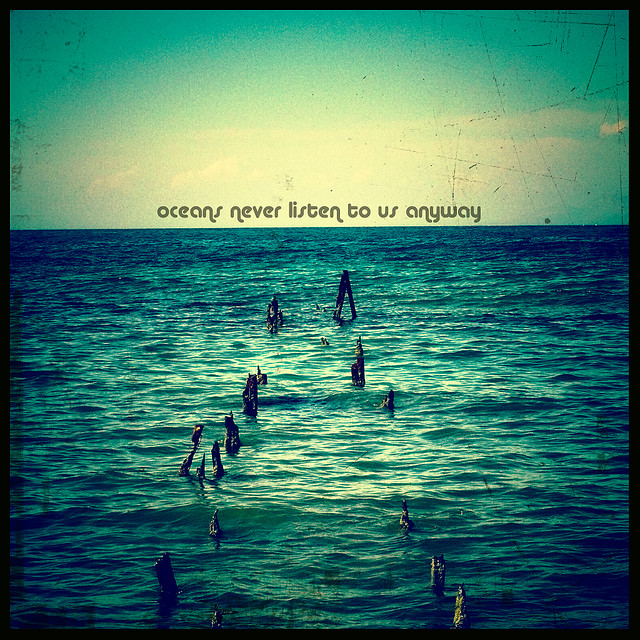That we are facing an environmental crisis is by now an indisputable point. Yet, substantial and sustainable change still eludes us. According to The New York Times, the future of our oceans is downright apocalyptic–or, at the brink of a “mass extinction event.” In fact, if you don’t want to read any further, just imagine your great-grandchildrens’ oceans as if they were in a movie directed by Michael Bay. If you want to read on and are a mammal living on planet earth then the ocean affects you now. Think of yourself as a parasite and the ocean is your host: her health is your health. And the oceans are unhealthy.
Why are the oceans unhealthy?
You may find yourself asking, “I went to the beach last week and it looked fine, maybe a little trash but nothing catastrophic.” Here’s the thing most of the people whose job it is to tell you if the ocean is sick don’t usually say: they’re not entirely sure what makes the ocean function. Sure, ocean science has tackled issues like jetstreams and tides, and you probably learned about plate tectonics in school. You may even know that the Big Island of Hawaii is just the very top of a massive deep sea mountain, but when it comes to determining just how much crap our oceans can take and keep on ticking we have no idea.
What we can say with a degree of authority, is that we are looking at mass extinctions across the oceans. Coral reefs have declined 40% worldwide as a result of climate change. Everywhere on Earth is experiencing profound loss of habitat, which has already led to climate refugees both on land and under the water. The Tuvalu Islanders may be the world’s first climate refugees forced to leave their Pacific island homes as they subside beneath a wave of climate change. Underwater, scientists are already observing similar species migration as fish respond to changes in their own fragile environments. Many of our current practices that directly affect the ocean don’t do enough to consider intricately complex environmental webs. Aquaculture could be the future of seafood, and offers one of the best sources of sustainable lean and healthy protein. Yet, aquaculture as an industrial practice is still not systematically sustainable enough to do more good than harm. Imagine what will happen when underwater mining becomes a thing: as of 2015, “contracts for seabed mining now cover 460,000 square miles underwater.” That number was zero in 2000.
So what can you do?
There’s not a lot any one of us can do in terms of changing global policy, but there is something you can do every day, even multiple times a day, that does make a difference. Every time you eat, you vote with your mouth, and carbon emissions threaten the ocean as much as anything. A vegan lifestyle is the best way to reduce your carbon footprint and make a difference daily. First, not eating fish reduces the explosive demand for fish, particularly large predator fish like tuna, that is effectively wiping out entire populations. Secondly, being vegan means you don’t contribute to acidification of our oceans, caused by greenhouse emissions generated by commercial cattle farming. The real issue facing us, as a species, on Earth, is how much we value the system in which we live as opposed to the systems of value we live for. It was not long ago that the oceans were considered an acceptable place to dump radioactive waste and as recently as 1995 France conducted nuclear testing in the South Pacific.
The oceans are our greatest shared resource and a wellspring for life on earth. They’re not gone yet, just slowly dying, and there’s a real scientific chance they could heal themselves. In a word, hope. But not without a little help from us. First, you must decide what side of the fence you are on. Social change is slow, but it will require slow and steady social change to fix the kind of problems we have. And you can’t look to politicians or their policies, you decide the difference you make. So forget the salmon, switch to a seaweed salad, and “just keep swimming” (in the words of Dori) in the right direction.
Related: Why Veganism Helps with Climate Change
Veganism and the Melting of West Antarctic Ice
Vegan Sushi and the Problem of Overfishing
__
Photo: Stathis Stavrianos via Flickr





